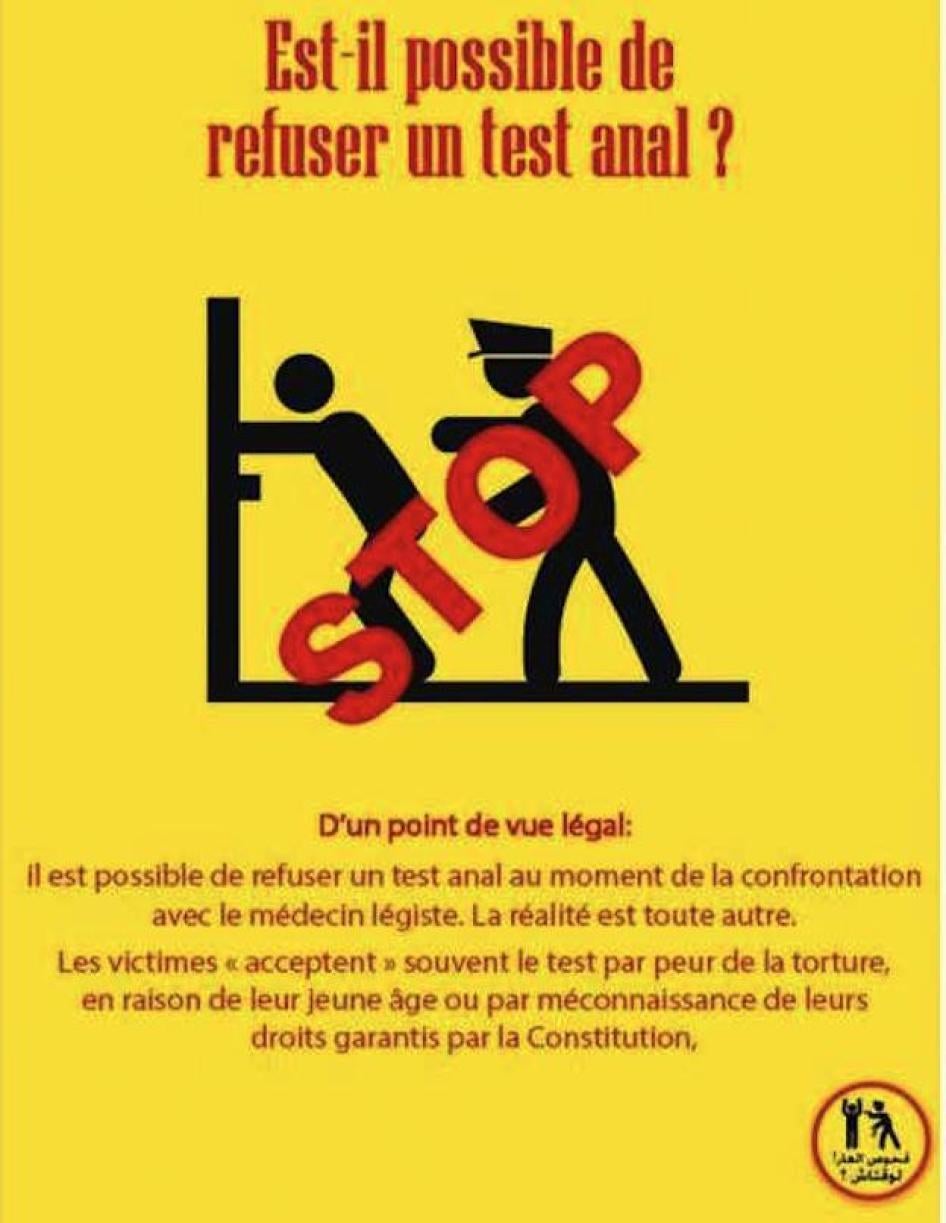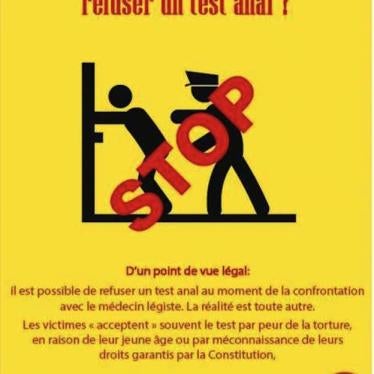It’s shocking that in 2017 people are still subjected to forced anal testing to try to “prove” their sexual orientation. But Tunisia and Kenya are the latest countries to take steps toward ending these archaic and abusive exams, discredited by forensic experts. Tunisia formally accepted a recommendation at the UN Human Rights Council to end forced anal exams, while the Kenya Medical Association has taken a public stance against them.
Tunisia’s decision is the product of pressure by human rights groups, which have documented how the torturous exams only serve to degrade and humiliate people suspected of having had anal sex.
Tunisia’s commitment to ban this practice should be applauded. But the government should go further. The country’s justice, health, and interior ministries should instruct their staff not to order or perform anal exams on anyone, even if people appear to “consent.” And if Tunisia really wants to end discrimination and violence against LGBT people, it should take the basic and long overdue step of decriminalizing consensual sexual conduct.
In Kenya, the government has not yet banned the exams, which the Attorney General’s office has defended in court. But this week the country’s Medical Association vowed to discourage any form of forced examination and to tell doctors to respect their professional code of conduct around patient consent if asked to perform anal exams by police.
This vocal opposition from Kenyan doctors is crucial. In Tunisia, and five years earlier in Lebanon, the state followed the lead of the medical community when doctors refused to persecute people in this way.
Kenya and Tunisia offer a ray of hope to victims of forced anal examinations across the continent and beyond. But it’s not all good news: some countries still use them to lock up men accused of homosexual conduct and others, like Tanzania, have recently used these outdated exams for the first time. These countries are on the wrong side of history. Tunisia’s government, and Kenya’s doctors, are leading the charge to end forced anal exams for once and for all.









